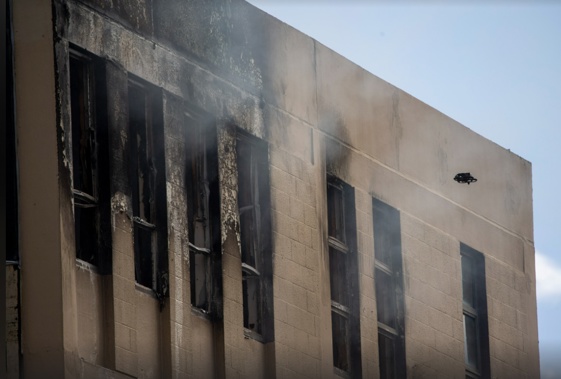
A Wellington property developer says building regulations are tough enough and it’s difficult to allow for unusual or extreme circumstances in some individual cases.
At least five people died in the Loafers Lodge hostel fire last week and police have formally identified three of them. They were Michael Wahrlich, known as Mike the Juggler, Melvin Joseph Parun and Peter Glenn O’Sullivan.
A 48-year-old man has been charged with two counts of arson. He has been granted interim name suppression and is due to appear in court again next month.
Loafers Lodge, on Adelaide Rd in Newtown, was issued with a building warrant of fitness earlier this year and was not legally required to have sprinklers.
Wellington developer Ian Cassels told Newstalk ZB Wellington Mornings host Nick Mills that building regulations were tough enough.
Cassels said most buildings were well run and New Zealand’s regulations were much better than in a lot of countries.
“But you can’t imagine or allow for the unusual or extreme circumstances.
“I think most people know that there’s a criminal element in the Loafers fire and that’s very hard to account and allow for, so we just need to have a little bit of patience and see how this thing pans out.”
Wellington City Missioner Murray Edridge told Mills he had been careful over the past week not to criticise Loafers Lodge as a building or its management team.
“All of us knew it was a difficult place to live, it was a place you lived if you didn’t have other alternatives.
- Police expect to recover bodies from Loafers Lodge today
- Ray Chung: Council will be pushing for mandatory sprinklers in all accommodation
- Michael Belsham: Sprinklers are important for saving lives, particularly in places where people sleep
“It just seems to me that there’s a challenge here that we can’t let this particular circumstance go unnoticed because the headlines will fade and in a few weeks people will get on with their lives.”
Edridge agreed with Cassels that, generally, New Zealand’s buildings were well built, especially by international comparisons.
“But this is about ensuring that everybody, and I mean everybody not just some of us, everybody has a safe and comfortable place to live where their well-being is not impacted day to day.”
Asked whether New Zealand should have minimum standards for living conditions, Cassels said he thought it “pretty much” already did.
“I think it’s just really whether on each day everyone is doing that ... it’s the consciousness of the people that are responsible for other people.
“It’s vital that they understand that they have a duty and they need to behave and continually think about other people’s welfare and that’s the mindset.”
Edridge said there was a tension between making buildings better and people being able to afford the costs associated with that.
“We’ve got to get the balance right.
“There are implications of that quite clearly for property owners and we’ve got to work out what is the space here where people can get on with their business, but we must have people living in appropriate accommodation.”
Take your Radio, Podcasts and Music with you









